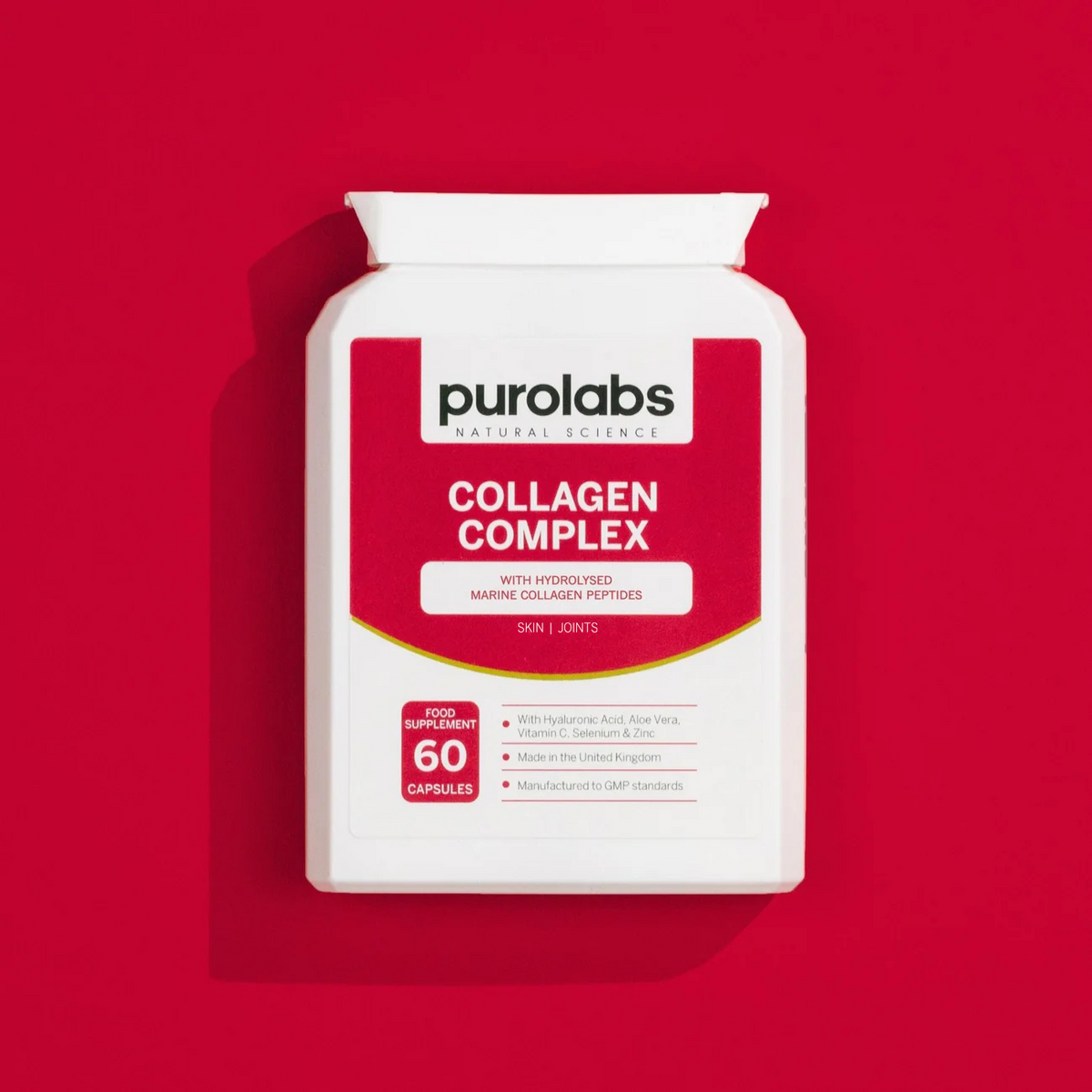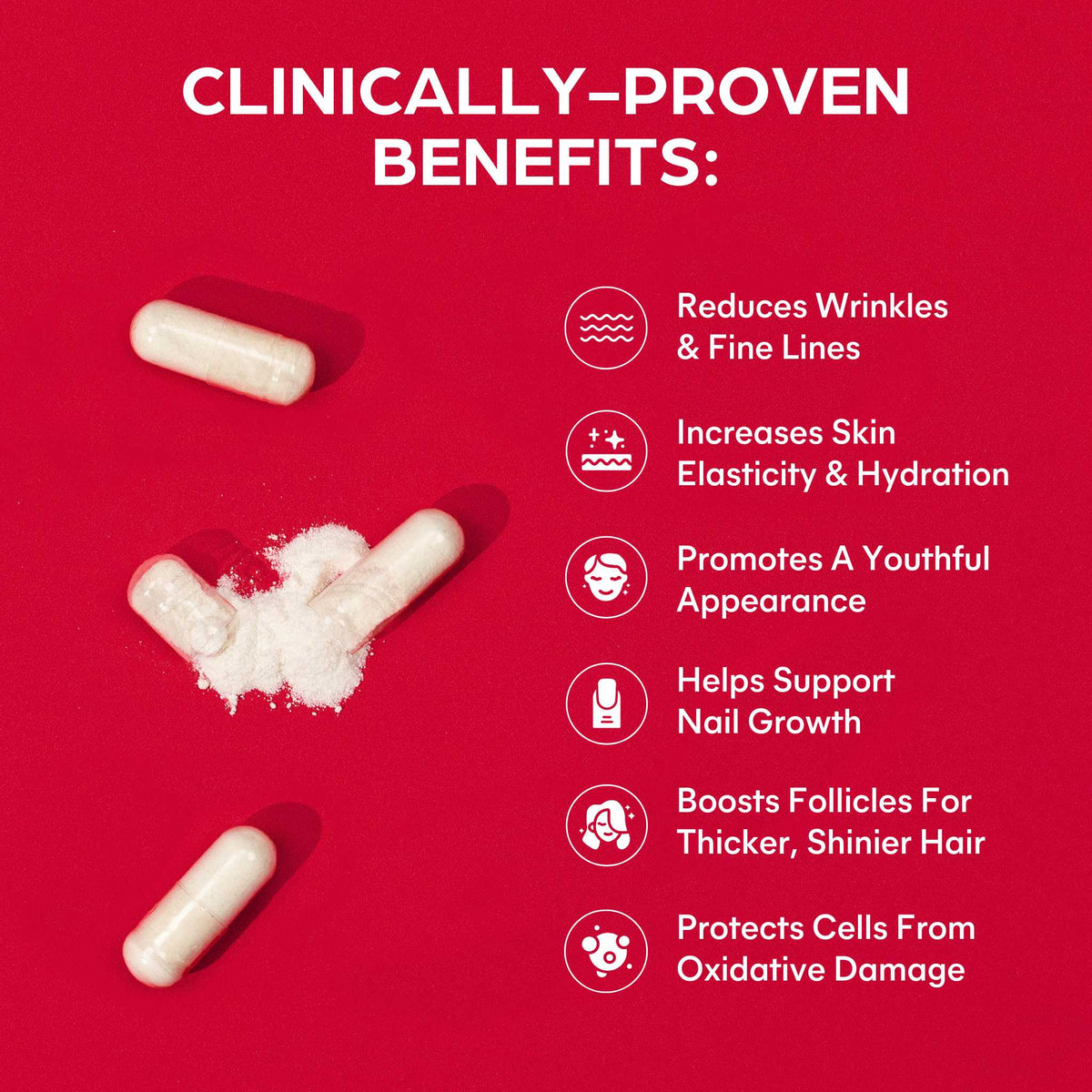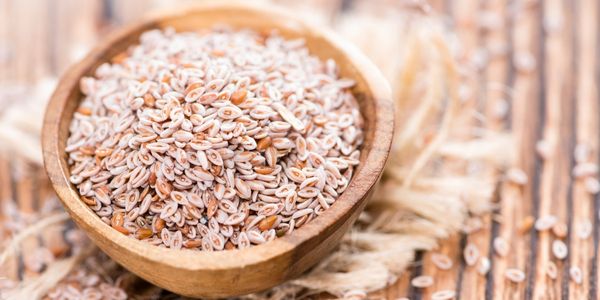Oh January…what a strange time of year for us all. The buzz of the festive period has passed. Your friends and family are doing combinations of Veganuary, dry January and obtaining (or renewing) their gym memberships.
January can be seen as a time for New Year’s resolutions, a bit of a health reset and to review the year before to see how you can work on your goals for the year ahead. Unfortunately, the days are shorter and everyone’s a little tight for cash, so socialising and getting outside tend to drop on the list of priorities this month. Also, to add to it all, January being a five-week month means that pay day feels like a pipedream.
OK enough doom and gloom from me. Although all of these elements in combination can explain why January isn’t everyone’s favourite month, there is something we can do about it hurrah!
Here’s a few mid-winter mood boosting foods for you to include in your diet, to help you navigate the months ahead:
Increase Vitamin D Intake
I will preface this tip by advising that in the Northern Hemisphere it can be difficult to obtain enough vitamin D through the foods you eat1. I would recommend supplementing with vitamin D capsules to ensure that a vitamin D deficiency isn’t an underlying cause for SAD.
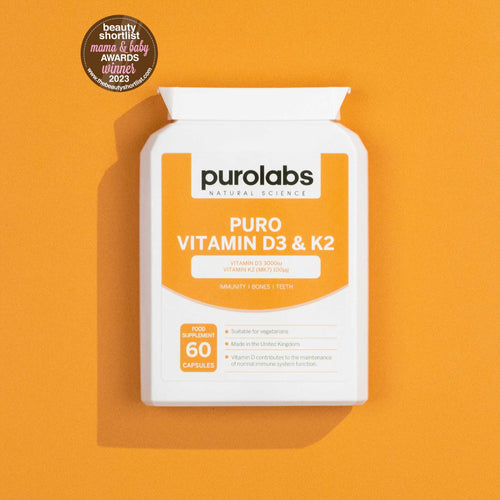
Vitamin D3 & K2
SAD, or Seasonal Affective Disorder, affects over 1 in 20 adults in the UK and has been shown to impact daily wellbeing, productivity, and energy in those suffering with the condition.
Symptoms of the condition include2:
- Sleeping for longer than usual, finding it hard to get out of bed in the morning
- Difficulty concentrating on daily tasks
- Low libido
- Low motivation
- Craving carbohydrate rich foods and weight gain
Although there is no known underlying cause for SAD, a vitamin deficiency which is commonly reported in those with the condition is vitamin D, therefore do ensure that you also increase your consumption of vitamin D foods3:
- Salmon
- Tuna
- Sardines
- Kefir
- Mushrooms
Tryptophan Rich Foods
Tryptophan is an amino acid which is required by the body for the production of serotonin (our feel-good hormone) in the gut4, making it a fantastic nutrient to increase and add to your daily intake.
And before you say it, the festive season has passed! However, turkey is a potent tryptophan rich food, therefore it may be worth considering adding a few more turkey sandwiches to your diet this month.
Almonds are also a rich source of tryptophan, and a comforting tryptophan rich drink to make before bedtime is an almond milk golden latte:
Ingredients
- A mug full of almond milk, 1 tsp turmeric, 1 tsp cinnamon, 1 tsp black pepper, 1 tsp honey or maple syrup. Simple.
Mix the ingredients in a pan on medium heat, until warmed through. Pour into your favourite mug and enjoy the mood boosting goodness.
Increase Healthy Fat Intake
Fats are the building blocks for neurotransmitters and hormones, meaning that if you do not have a diet that includes healthy fats, then this can lead to hormonal imbalances and a reduction in cognitive function, both significantly affecting mood and wellbeing.
Our brain is made up of 60% fat! 5 Therefore, a diet low in healthy fats will absolutely affect all aspects of our mental health. And it is important to note here that fats do not make you fat, they are essential for many processed within our bodies that contribute to overall health. They even make up the protective layer surrounding every single one of our bodily cells.
Increase your intake of:
- Olive oil
- Grass fed butter
- Avocado
- Salmon and other fatty fish
Fermented Foods Are Your Friend
Many recent studies are unearthing the link between inflammation in the gut and its impact on wellbeing and mood, with studies even linking depression and anxiety to an altered microbiome6.
Increasing your intake of probiotic rich foods, therefore are essential to maintain and grow a thriving diverse microbiota. You can of course take a gut health supplement if fermented foods aren’t your thing (fermented foods are refreshingly tangy). Purolabs Biotic Complex has 12 strains of clinically backed bacteria, making it an ideal supplement to consider.
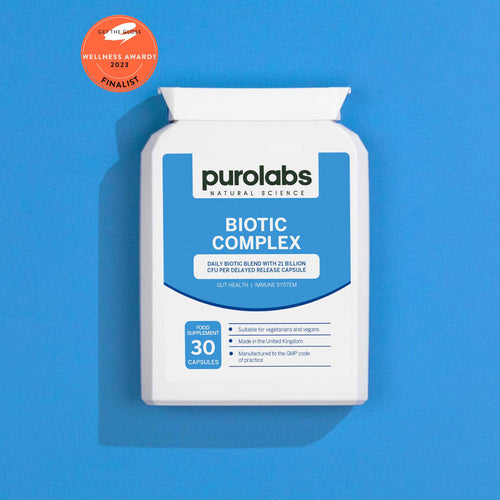
Biotic Complex
Fermented foods to add to your daily diet include7:
- Sauerkraut
- Kimchi
- Kefir
- Sourdough
- Tempeh
Increase the Colour on Your Plate
Firstly, nothing will perk your mood like a filling, nourishing bowl of colour, especially during these dreary winter months. Secondly, antioxidant foods are the most colourful foods you’ll find and have brain boosting, mood lifting properties8. Inflammation, as outlined, is a driving contributor to poor mood and wellbeing. Antioxidants help to mop up inflammatory free radicals and help lower inflammation levels in the body9.
A list of anti-inflammatory antioxidant foods to include in your daily diet are:
Produce: Berries, bell peppers, garlic, artichoke, pecans and walnuts, chia seeds, olive oil
Herbs & Spices: Rosemary, cayenne, chilli, turmeric, peppermint, cinnamon
Good quality dark chocolate is also rich in antioxidant flavonoids10 which make it an ideal mood boosting food, besides it being delicious. Choose chocolate with cocoa solid content of 70% and up to reap the benefits.
My last piece of advice if you are feeling a little under the weather this time of year, is that it is completely normal given the climate, social and financial circumstances. Eating a nourishing well balanced diet is a great way to boost your mood and support your health during this time.
Although dietary considerations are important, lifestyle changes also go a long way to supporting wellbeing and mood. Self-care is especially important at this time of year. Try incorporating any or all of the below lifestyle tips that appeal to you, to help boost your mood:
- Maintain 8 hours of good quality sleep every evening. Adopt a bedtime routine by going to bed at the same time each evening, turning off all blue light devices 30 minutes before bed and ensure that your room is a comfortable temperature. If you experience racing anxious thoughts whilst trying to sleep, then journalling or downloading a good sleep app is worth considering.
- Try to maintain a social life during these months. Socialising in minus temperatures is not something many of us get excited about, however ensure that you are interacting with loved ones regularly to keep connected. If you need to socialise in a cosy pub with a roaring fire to get yourself out the house, so be it. Doesn’t sound like a terrible idea…
- Be kind to yourself. When we find ourselves in a low headspace, we tend to lean towards negative self-talk, which perpetuates stress and lowers our resilience11. A very hard habit to break, however if you catch the thought as you’re having it and tell yourself a more positive story, the brain can rewire new neural pathways within a matter of weeks to help reduce the amount of negative self-talk. A lot easier said than done, but this tip alone can make all the difference.
Try adopting a mix of the above tips throughout this article to help you during this time of year. If you find any of the above tips help you, do reach out to us to share your own mood-boosting tips and hacks.

 Beauty
Beauty
 Bone Health
Bone Health
 Brain Health
Brain Health
 Energy
Energy
 Eye Health
Eye Health
 Gut Health
Gut Health
 Hair
Hair
 Hormonal Health
Hormonal Health
 Heart Health
Heart Health
 Immunity
Immunity
 Joints
Joints
 Menopause
Menopause
 Pregnancy
Pregnancy
 Kids
Kids
 Sleep
Sleep
 Stress & Mood
Stress & Mood





